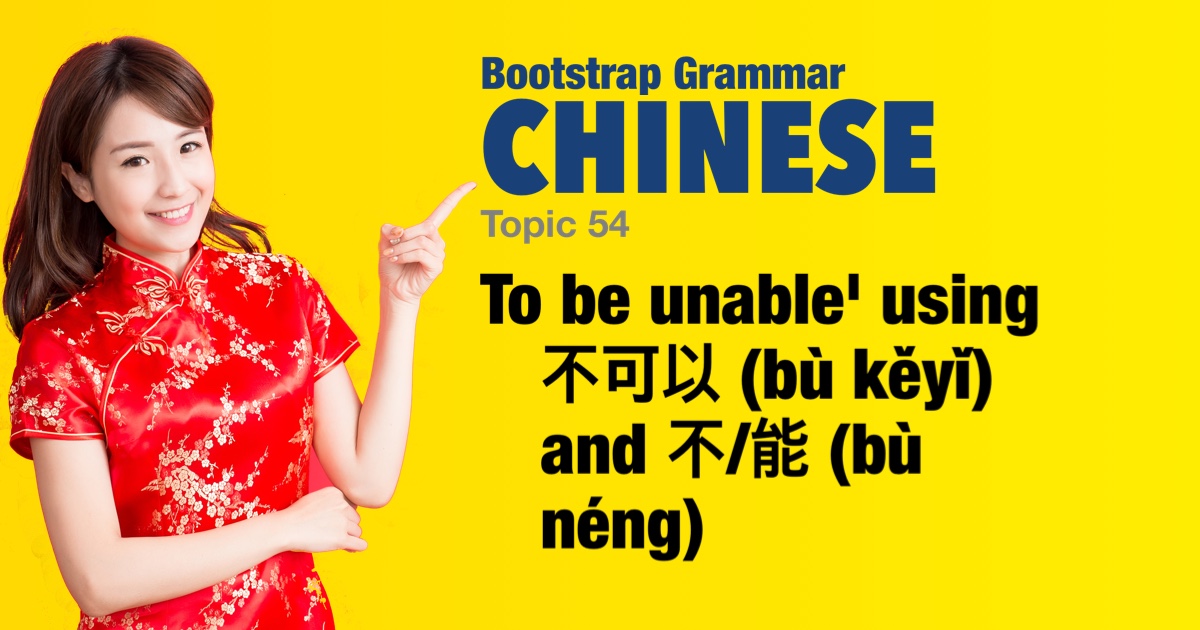Chinese grammar - To be unable' using 不可以 (bù kěyǐ) and 不/能 (bù néng) |
|||
|
|||
The Chinese verbs 不可以 (bù kéyǐ) and 不/能 (bù néng) both mean 'to be unable to' or 'cannot'. However, the emphasis is different: • 不可以 (bù kéyǐ) is where the emphasis is on lack of permission. • 不/能 (bù néng) is used for incapacity due to some physical or other limitation. |
| Examples: | |
|
她不能吃花生。
tā bù néng chī huāshēng. She cannot eat peanuts because they make her sick.
|
|
|
这里不可以拍照。
zhèlǐ bù kéyǐ pāizhào. You are not allowed to take photos here.
|
|
|
你不可以用我的电脑。
nǐ bù kéyǐ yòng wǒ de diànnǎo. You are not allowed to use my computer.
|
|
|
他不能喝酒。
tā bù néng hē jiǔ. He cannot drink alcohol.
|
|
|
我不能拍照。
wǒ bù néng pāizhào. I can't take photos.
|
|
|
你不能迟到。
nǐ bù néng chídào. You cannot be late.
|
|
|
这里不可以抽烟。
zhèlǐ bù kéyǐ chōuyān. Smoking is not allowed here.
|
|
|
这里不可以停车。
zhèlǐ bù kéyǐ tíngchē. Parking is not allowed here.
|
|
|
他不能游泳。
tā bù néng yóuyǒng. He cannot swim.
|
|
|
你在课堂上不可以用手机。
nǐ zài kètáng shàng bù kéyǐ yòng shǒujī. You are not allowed to use your phone in class.
|
|
|
她不能吃辣的食物。
tā bù néng chī là de shíwù. She cannot eat spicy food.
|
|
|
她不能走路。
tā bù néng zǒulù. She cannot walk.
|
|
|
我不能在那里停车。
wǒ bù néng zài nàlǐ tíngchē. I cannot park there.
|
|
 |
|


 Physically unable so use
Physically unable so use 
